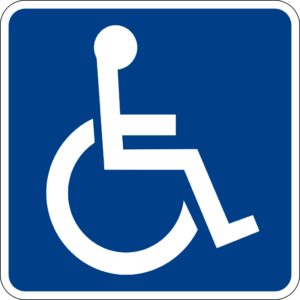Litigation gone awry

Image by Ltljltlj, Creative Commons
In reading a recent Business Insurance article titled “Wheelchair-bound man can’t sue restaurant: Court,” I was struck by the last paragraph that said, “Defense attorneys have said that ‘drive-by lawsuits’ under the ADA are often based on minor architectural issues. They say multiple lawsuits are often filed by the same firms, with the same named plaintiffs, with the intent of encouraging businesses to readily settle for attorney fees because it would be less expensive than facing further litigation.”
I shared this with many of our readers and asked simply, “Sound familiar?” to which I received a resounding “Yes!” We in the insurance industry are so accustomed to seeing hundreds of lawsuits and we can’t help but ponder, “Is this a case of throwing lots at the wall and hoping something will stick?” That “something” is attorney fees, the subject of several bills in our newsletter’s Bill Watch. In this specific story, it appears a certain firm or firms has hired a disabled consumer to “visit” restaurants to determine if the business is compliant with the Americans with Disabilities Act (ADA).
The wheelchair-bound consumer visited the Golden China restaurant in Red Wing, Minnesota and found various deficiencies, including lack of a fully compliant parking spot, signage issues, and too steep a slope, but never tried to get out of his vehicle and go inside the restaurant. With the help of his lawyer, he filed 13 lawsuits in federal court, including claims against Golden China under the ADA.
The district court found he had standing to bring the lawsuit but failed to meet his burden. A federal appellate court disagreed, saying he had no standing. He had admitted he doesn’t like Chinese food, that neither he nor his friends or family planned to go back to Golden China, and that his return to the restaurant a month later was simply “to see the changes had been made,” according to the panel’s unanimous ruling. Business Insurance reports that attorneys in the case didn’t respond to requests for comment.
While the court acknowledged that businesses are required to make architectural changes to accommodate access for the disabled, there are financial consequences on those businesses to make the improvements – something that shouldn’t be wasted on frivolous lawsuits.
LMA Newsletter of 2-22-21

